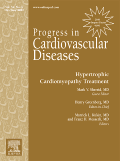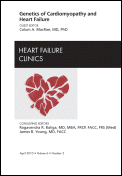
Cardiovascular Digital Health Journal
Scope & Guideline
Exploring the Nexus of Digital Health and Cardiovascular Wellness
Introduction
Aims and Scopes
- Digital Health Technologies:
The journal emphasizes the application of digital health technologies, such as wearable devices, telemedicine, and mobile health (mHealth) applications, to monitor and manage cardiovascular conditions. - Artificial Intelligence and Machine Learning:
A significant focus is on the integration of artificial intelligence (AI) and machine learning techniques for improving diagnostic accuracy and predicting cardiovascular events, including the development of algorithms that analyze ECG data. - Remote Patient Monitoring:
The journal explores remote monitoring strategies for patients with cardiovascular diseases, assessing the feasibility, efficacy, and patient engagement associated with these technologies. - Patient-Centered Care:
Research contributing to the understanding of patient perspectives, experiences, and satisfaction with digital health tools in managing cardiovascular conditions is a core area of interest. - Clinical Applications and Outcomes:
The journal publishes studies that evaluate the clinical effectiveness of digital health interventions in improving outcomes for cardiovascular patients, including risk stratification and management of comorbidities.
Trending and Emerging
- Telehealth and Remote Care Models:
Recent publications highlight the expansion of telehealth services, particularly in the context of the COVID-19 pandemic, showcasing innovations in remote consultations and monitoring for cardiovascular patients. - Wearable Technology Integration:
There is a growing emphasis on studies examining the use of wearable technologies, such as smartwatches and mobile ECG devices, for real-time monitoring and management of cardiovascular conditions. - Artificial Intelligence in Clinical Decision Making:
An increasing number of articles focus on the application of AI for predictive analytics and decision support in cardiology, reflecting a trend toward data-driven approaches in patient care. - Patient Engagement and Self-Management:
Emerging research emphasizes strategies for enhancing patient engagement through digital tools, fostering self-management of cardiovascular health and adherence to treatment protocols. - Impact of Digital Health on Health Disparities:
The journal is beginning to explore how digital health interventions can address health disparities among different populations, highlighting the need for equitable access to cardiovascular care technologies.
Declining or Waning
- Traditional Cardiac Monitoring Techniques:
There is a noticeable reduction in studies focused on conventional monitoring methods, such as Holter monitors, as digital and wearable technologies gain prominence for continuous monitoring. - Invasive Procedures in Cardiology:
Research centered on invasive cardiac procedures, such as catheter ablations, is becoming less frequent, possibly due to the growing interest in non-invasive digital solutions. - General Health Applications:
Papers that broadly discuss health technologies without a specific cardiovascular focus are declining, as the journal increasingly concentrates on specialized applications within cardiovascular care.
Similar Journals

Egyptian Heart Journal
Connecting practitioners and researchers in the heart of science.The Egyptian Heart Journal, published by Springer, is a premier open-access journal dedicated to advancing the field of cardiology and cardiovascular medicine. As of 2023, it holds a Q3 classification within the category, showcasing its growing influence within the research community, and ranks 241 out of 387 in Scopus, reflecting a 37th percentile position. With an E-ISSN of 2090-911X, this journal has been open access since 2011, making it easily accessible to researchers, practitioners, and students alike. The journal aims to disseminate high-quality research articles, reviews, and case studies that contribute to the understanding and treatment of cardiovascular diseases. With its focus on innovative and practical solutions in cardiology, the Egyptian Heart Journal plays a critical role in shaping current and future cardiovascular research. Its global outreach and commitment to open access ensure that vital information is available to a wide audience, enhancing both scholarly discourse and clinical practice in the evolving landscape of cardiovascular medicine.

HEART & LUNG
Shaping the Future of Heart and Lung ResearchHEART & LUNG is a premier academic journal published by MOSBY-ELSEVIER, focusing on the critical intersections of cardiology, critical care, and respiratory medicine. Since its inception in 1973, the journal has established a significant reputation within the medical community, as evidenced by its impressive Q2 ranking in key categories such as Cardiology and Cardiovascular Medicine, Critical Care and Intensive Care Medicine, and Pulmonary and Respiratory Medicine for the year 2023. With a dedicated readership comprising researchers, healthcare professionals, and students, HEART & LUNG serves as a vital platform for disseminating cutting-edge research, clinical innovations, and comprehensive reviews that influence practice standards and enhance patient care. While it currently does not offer Open Access options, readers can access a wealth of information pivotal to the advancement of medical knowledge and practice through conventional subscription. Explore the latest findings and contribute to the ever-evolving landscape of cardiovascular and respiratory health through this esteemed journal.

PROGRESS IN CARDIOVASCULAR DISEASES
Advancing the Frontiers of Cardiovascular MedicinePROGRESS IN CARDIOVASCULAR DISEASES is a leading journal in the field of cardiology and cardiovascular medicine, published by W B SAUNDERS CO-ELSEVIER INC. With an impressive impact factor that places it in the esteemed Q1 quartile of its category, this journal ranks among the top 32 out of 387 journals in its field, positioning itself in the 91st percentile. Since its inception in 1958 and continuing until 2024, it has been a prolific source of cutting-edge research, reviews, and clinical insights that contribute significantly to the understanding and treatment of cardiovascular diseases. Although it does not currently offer open access options, the journal's rigorous peer-review process ensures that all published content meets the highest standards of scientific excellence. As a key resource for researchers, practitioners, and students alike, PROGRESS IN CARDIOVASCULAR DISEASES serves as an indispensable tool for advancing knowledge and practice in cardiovascular health.

Heart Failure Clinics
Fostering Collaboration for Better Heart Health OutcomesHeart Failure Clinics, published by Elsevier Science Inc, stands at the forefront of research and clinical practice in the rapidly evolving field of cardiology and cardiovascular medicine. With an ISSN of 1551-7136, this prestigious journal has established a reputation for high-quality peer-reviewed articles, offering critical insights into heart failure management, innovative therapies, and health care strategies. Ranked in the Q2 quartile for cardiology and cardiovascular medicine and recognized in the Q1 quartile for miscellaneous medicine as of 2023, it reflects a significant impact on both clinical and academic communities, holding a commendable position in the 73rd percentile of its category according to Scopus rankings. Since its inception in 2005, this journal has continuously been a vital resource for researchers, healthcare professionals, and students aiming to enhance their understanding of heart failure. Although it does not offer full open access options, the depth and relevance of its content make it indispensable for anyone engaged in heart health research and practice. Located in the heart of New York, at 230 Park Ave, STE 800, it aims to foster knowledge exchange and promote advancements in cardiovascular care until its converged years in 2024.

WIENER KLINISCHE WOCHENSCHRIFT
Exploring the frontiers of medicine with every publication.WIENER KLINISCHE WOCHENSCHRIFT, published by SPRINGER WIEN, is a prestigious medical journal with a rich history dating back to 1946. With an ISSN of 0043-5325 and E-ISSN 1613-7671, it serves as a vital resource for researchers, healthcare professionals, and students engaged in the field of general medicine. The journal holds a commendable Q2 category ranking in Medicine (miscellaneous) and is positioned in the top 18% of its field according to Scopus, ranked #110 out of 636. Although it is not an open-access journal, it offers an essential platform for the dissemination of high-quality research, case studies, and clinical insights from Austria and beyond. The objectives of the journal include advancing medical knowledge, fostering collaborative research, and providing practitioners with the latest findings that inform clinical practice. This makes it an invaluable asset for anyone looking to stay at the forefront of medical research and development.

CANADIAN JOURNAL OF CARDIOLOGY
Empowering Cardiovascular Innovations Through Rigorous ResearchCanadian Journal of Cardiology (ISSN: 0828-282X, E-ISSN: 1916-7075), published by Elsevier Science Inc, serves as a vital platform for disseminating high-quality research in the dynamic field of cardiology and cardiovascular medicine. Since its inception in 1985, this journal has established itself as a leader in the field, currently holding a prestigious Q1 ranking in Cardiology, indicating its significant impact and contribution to medical science. With a Scopus rank of #50 out of 387 in its category and placing in the 87th percentile, the journal showcases rigorous peer-reviewed articles that advance knowledge and practice in cardiology. Although the journal is not open access, it provides valuable insights and research findings that cater to clinicians, researchers, and students who are committed to improving cardiovascular health. As we approach the convergence of years to 2024, the Canadian Journal of Cardiology continues to strive for excellence, facilitating a discourse vital for both academic and clinical advancements in cardiology.

ARCHIVOS DE CARDIOLOGIA DE MEXICO
Bridging gaps in cardiovascular health with accessible knowledge.ARCHIVOS DE CARDIOLOGIA DE MEXICO is a premier open-access journal dedicated to advancing research and clinical practice in the field of cardiology and cardiovascular medicine. Published by the Instituto Nacional de Cardiología Ignacio Chávez since 2001, this journal offers a valuable platform for the dissemination of high-quality, peer-reviewed articles that span diverse aspects of cardiovascular health. With its current categorization in the fourth quartile (Q4) of cardiology journals and a Scopus rank of #319 out of 387, ARCHIVOS DE CARDIOLOGIA DE MEXICO is positioned within the dynamic landscape of cardiovascular research, presenting opportunities for both emerging and established voices in the field. It aims to promote discussion and innovation across various topics in cardiology, making it a crucial resource for researchers, healthcare professionals, and students keen on keeping abreast of developments in cardiovascular science. Accessible online since 2009, this journal fosters collaboration and knowledge sharing among specialists worldwide, establishing itself as a significant contributor to the global discourse on heart health.

Open Cardiovascular Medicine Journal
Unlocking Insights in Cardiovascular MedicineOpen Cardiovascular Medicine Journal is a notable scholarly platform published by Bentham Science Publishers Ltd, dedicated to advancing knowledge in the field of cardiology and cardiovascular medicine. With an E-ISSN of 1874-1924, this open-access journal has been a beacon for researchers and clinicians alike since its inception in 2009. Acting as a conduit for the latest research findings, the journal fosters interdisciplinary collaboration and innovation, contributing to the overall progress in cardiovascular health. Although currently ranked in the 26th percentile among cardiology journals, it emphasizes high-quality, peer-reviewed articles that uphold the rigorous standards of academic integrity. The journal also benefits from a robust editorial team and an array of publication options, ensuring accessibility and visibility of crucial cardiovascular research. As it continues its journey through 2023 and beyond, Open Cardiovascular Medicine Journal remains essential for anyone invested in the challenges and advancements within the cardiovascular domain.

JOURNAL OF INVASIVE CARDIOLOGY
Exploring Innovations in Invasive ProceduresJOURNAL OF INVASIVE CARDIOLOGY, a reputable publication by H M P COMMUNICATIONS, is dedicated to advancing the field of cardiology and cardiovascular medicine through rigorous research and scholarly discussion. With an ISSN of 1042-3931 and an E-ISSN of 1557-2501, this journal serves as a crucial resource for healthcare professionals, researchers, and students who seek to stay informed about the latest findings and innovations in invasive cardiology. Having achieved a 2023 Scopus rank of #185 out of 636 in General Medicine, placing it in the 70th percentile, the journal is recognized for its significant contributions to medical science, evidenced by its Q2 ranking in Radiology, Nuclear Medicine and Imaging, and Q3 status in both Cardiology and Cardiovascular Medicine. The journal has been in circulation since 1990 and continues to foster a platform for critical research in the United States, ensuring accessibility to vital information necessary for enhancing patient care and clinical practices within the domain of invasive procedures.

REVISTA ESPANOLA DE CARDIOLOGIA
Bridging Theory and Practice in CardiologyREVISTA ESPANOLA DE CARDIOLOGIA is a premier journal dedicated to the dynamic field of cardiology, published by EDICIONES DOYMA S A in Barcelona, Spain. With an impressive Q1 status in the Medicine (miscellaneous) category for 2023, this journal is recognized for its significant contributions to cardiovascular research, evidenced by its rank of #61 out of 387 in the Scopus database, placing it within the top 16% of journals in its field. Covering a broad range of topics within cardiology, the journal aims to disseminate high-quality research, clinical studies, and educational content, fostering knowledge sharing among researchers, clinicians, and students alike. While it does not currently offer open access, the journal maintains a commitment to advancing cardiovascular health through rigorous peer-reviewed articles. With a publication history that spans from 2013 to 2024, REVISTA ESPANOLA DE CARDIOLOGIA is an essential resource for those seeking to stay at the forefront of cardiology advancements and practices.